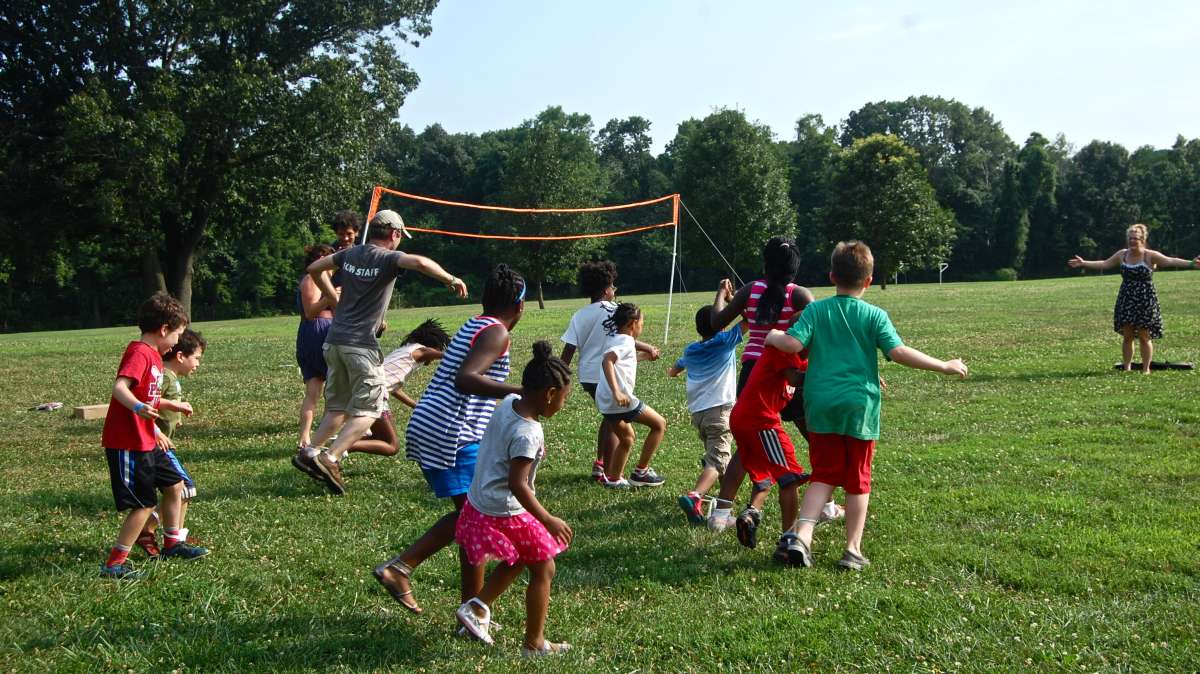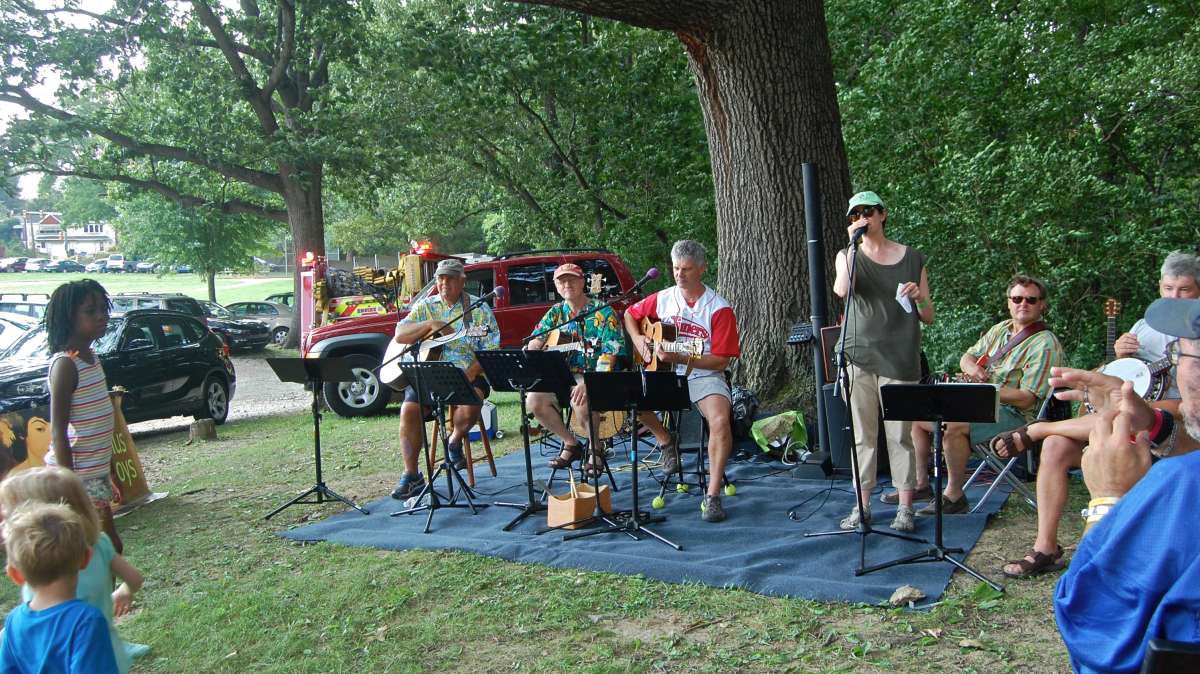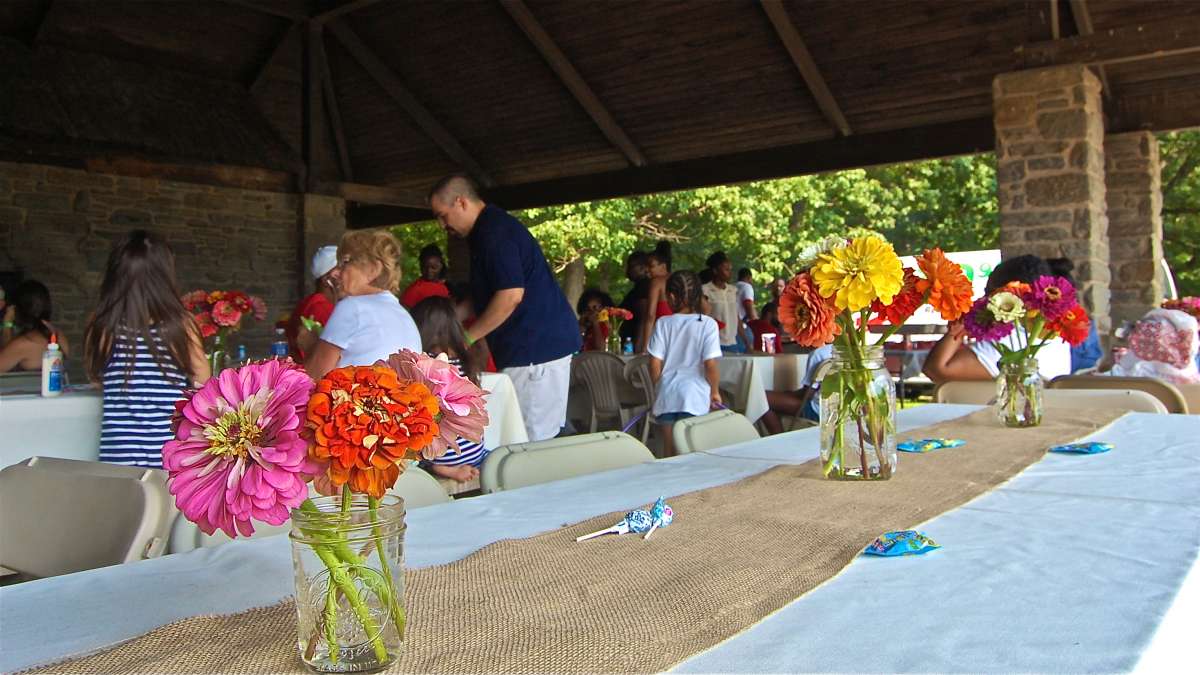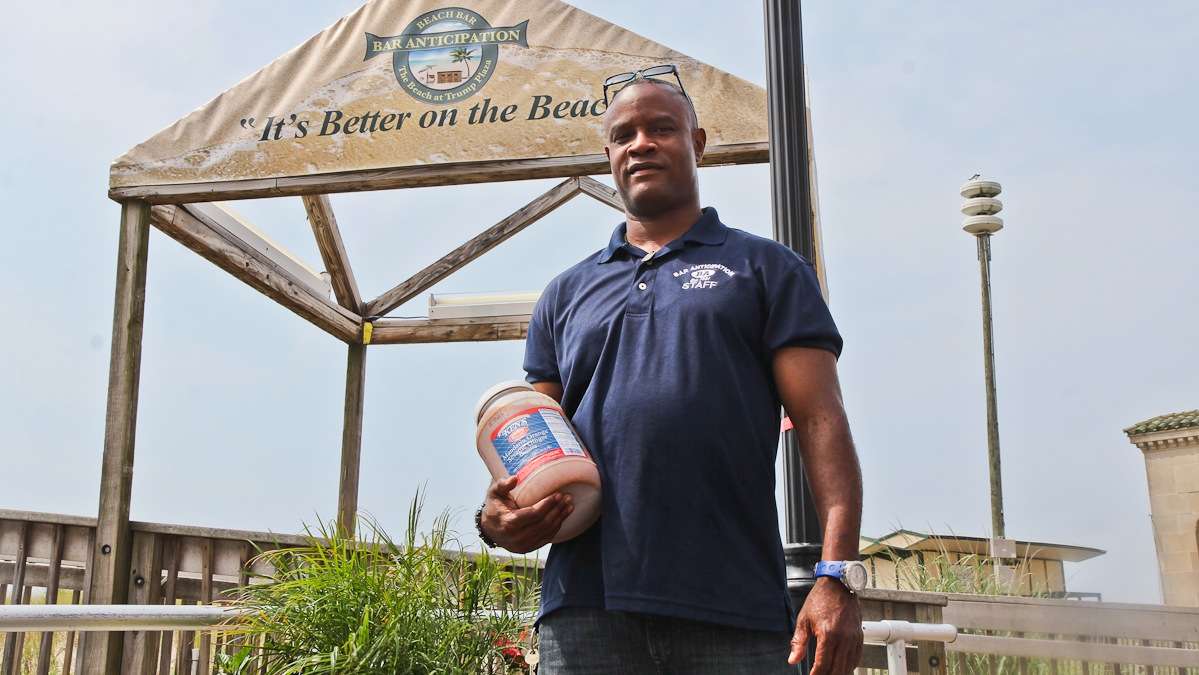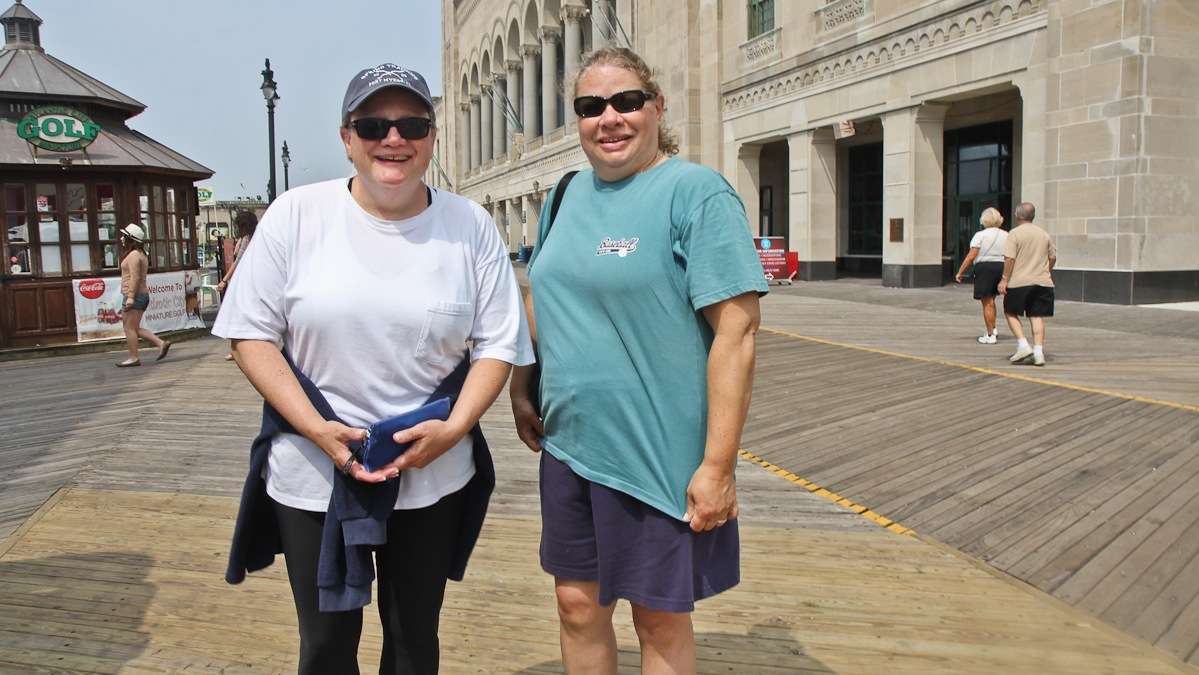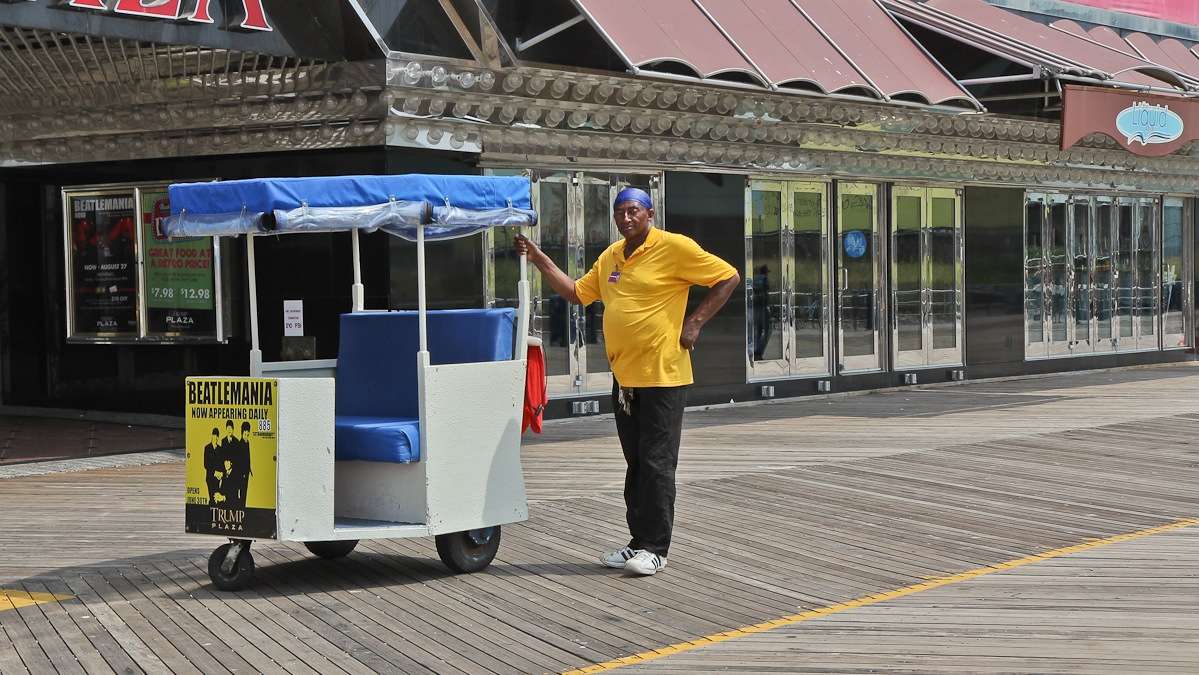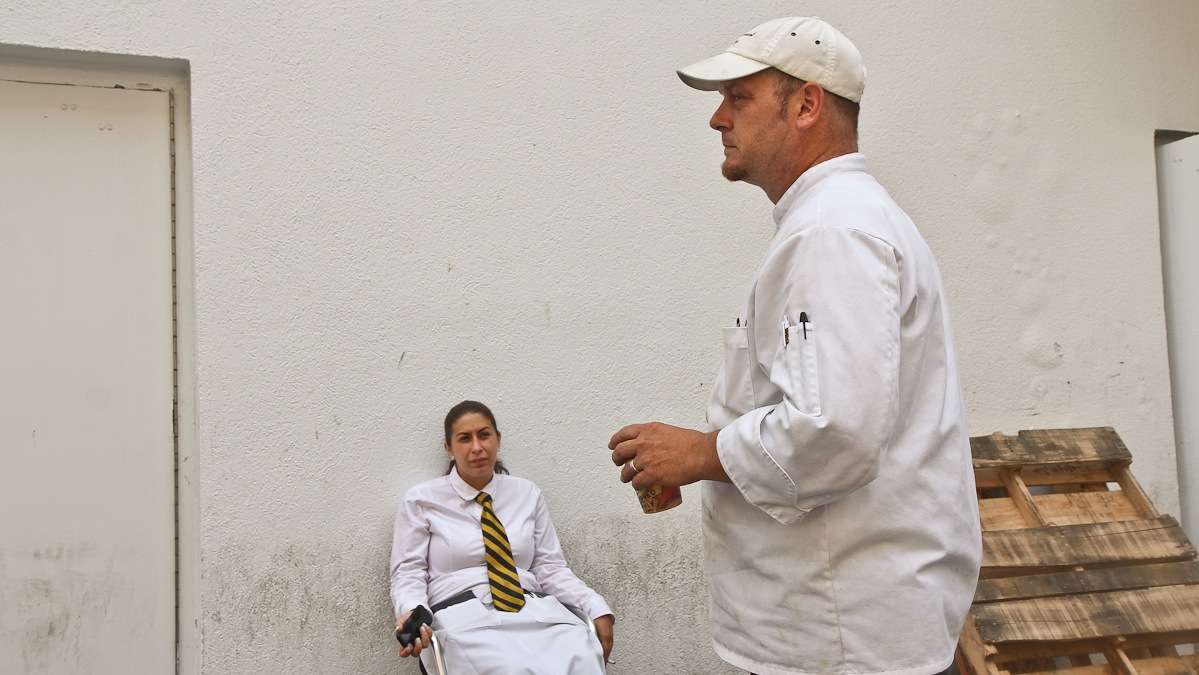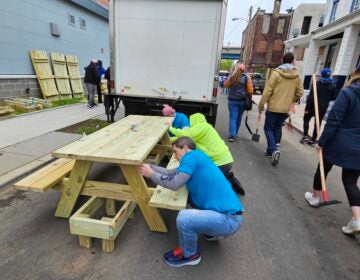Northwest Free Library tour shows innovations as well as needs
Close your eyes and picture a library. If all you see is a lone reader sitting in silence, it’s been too long since your last visit.
Step into the Falls of Schuylkill Branch on a Thursday afternoon and you’ll see teens wearing goggles, testing principles of acceleration with slant boards and cork cars, or visit Roxborough, to hear librarian Bruce Siebers reading in an indoor tree house to a group of rapt “baby seals” (his name for pre-k clients —”because they’re small and quick!”).
These two Northwest Philadelphia outposts of the Free Library of Philadelphia (FLP) were visited this month by library supporters who got the chance to see how their donations are put to work.
It is one of four such tours being given this month.
Targeting under-fives
Children younger than five are one of five populations prioritized by FLP in its strategic plan extending through 2017. In addition to under-fives, the FLP has targeted job seekers, entrepreneurs, new Americans, and people with disabilities across 61 city locations.
To better serve early and pre-readers, staff look to cultivate relationships with schools, day care facilities, and community groups. Plus, kids’ areas are often stocked with toys and picture books, child-level shelving, and pillows for cozying up with a book.
Building library-school relationships
Libraries and schools are natural partners, and though there is no official relationship between FLP and the School District of Philadelphia, many librarians take it upon themselves to get to know nearby schools and teachers, the better to tailor programs to the needs of neighborhood children.
At the Wadsworth branch in Stenton, children’s librarian Christopher Brown explained that during the school year, the branch has a significant latchkey population every afternoon. Brown and branch manager Juanita Vega deJoseph keep in touch with personnel at the schools closest to Wadsworth — McCloskey Elementary and St. Raymond’s.
The branch also has an active Reading Buddies program that pairs children with senior adults to read together.
Roxborough is often visited by classes from Roxborough High School, which is just a block away and has no library. Siebers and adult/teen librarian Eric Woods welcome the students, but require them to check out two books on every visit.
Strategies like this, along with eager families who borrow dozens of books, CDs and DVDs from Roxborough, have made it one of the highest circulating branches in the system— more than 171,000 items in fiscal year 2014.
Bridging demographic boundaries
Much of a branch library’s success depends on the skill of its staff to read its users. For many libraries, that means reaching out to groups at either end of the economic and educational spectrums. Staff may work with users who speak many languages, or have difficulty reaching the library.
To increase access, FLP “Hot Spots” are set up in non-library locations, assisting mostly adults in the community by providing computer access to research and apply for jobs, and to explore other services online.
Falls of Schuylkill manager and librarian Valerie Taylor-Samuel notes that her branch serves a population in which “about 30 percent are well below the poverty line, 10 percent are very wealthy, and the rest are lower-middle.”
Finding funding
Though the city recently reversed a trend by increasing library funding for fiscal year 2015, small staffs and declining public support have been the norm for several years at FLP.
The City of Philadelphia funds operations, expenses required to open the doors — such as librarians and security guards — as well as utilities. The extras, like programming, are funded by the Free Library of Philadelphia Foundation.
“It is a public-private partnership,” said Melissa Greenberg, FLP vice president of development.
As public support has declined, individual donations have become increasingly important.
Some supporters make endowments or bequests, as Manayunk mill owner William B. Stephens did for the Roxborough branch. Decades later, his gift still supports the purchase of materials.
Private funds are essential for the library to expand staffing, develop new programs, maintain collections that respond to present-day needs, and renew aging buildings.
For example, another Northwest library, Lovett Memorial, part of the FLP’s 21st Century Libraries Initiative to transform neighborhood libraries was initially slated to be part of the tour but could not be visited because an air conditioning problem caused a closure that lasted several days.
‘With a little help from my friends’
Many branches receive vital support from Friends of the Free Library groups, whose members volunteer at the brnaches and raise funds.
Friends of the Wadsworth Branch provided funds for toys in a refurbished play station. At Falls of the Schuylkill, the Friends host an annual Christmas tree and wreath sale, a used-book sale, and maintain the gardens that surround the 100-year-old building.
Upcoming tours will explore branches in Northeast, North and South Philadelphia.
WHYY is your source for fact-based, in-depth journalism and information. As a nonprofit organization, we rely on financial support from readers like you. Please give today.


